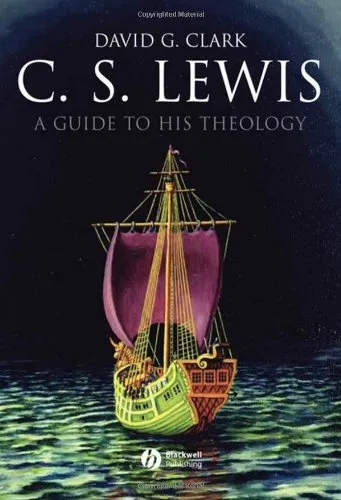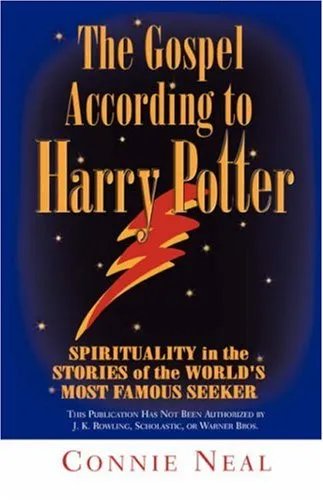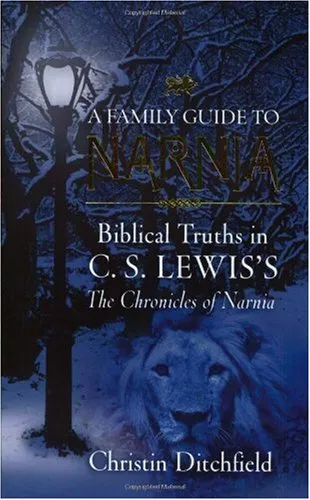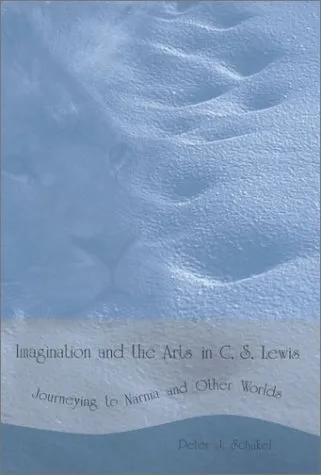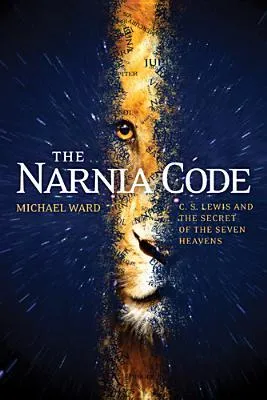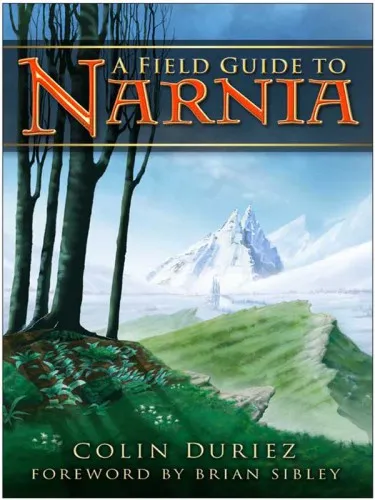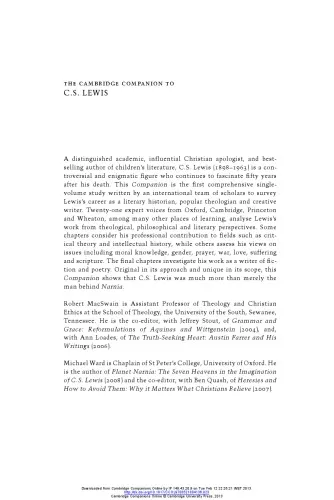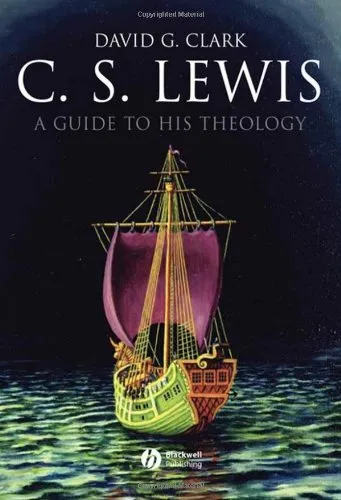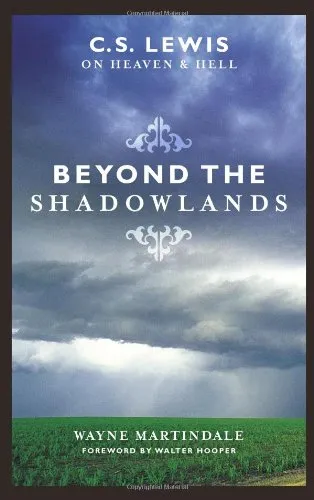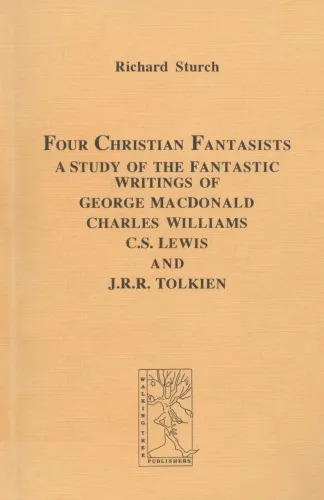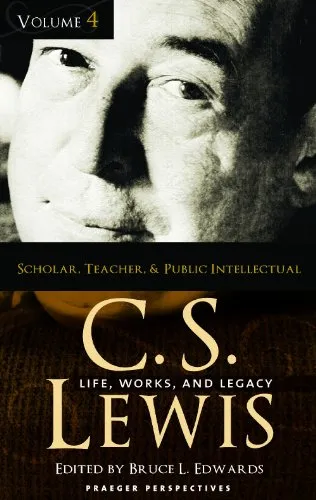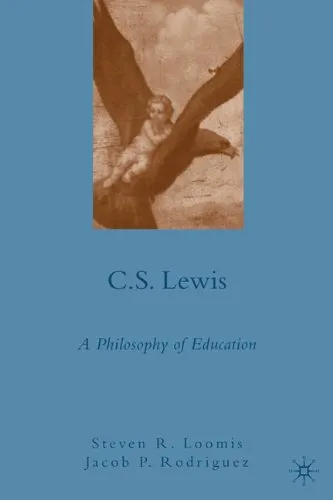C.S. Lewis: A Guide to His Theology (Blackwell Brief Histories of Religion)
4.5
بر اساس نظر کاربران

شما میتونید سوالاتتون در باره کتاب رو از هوش مصنوعیش بعد از ورود بپرسید
هر دانلود یا پرسش از هوش مصنوعی 2 امتیاز لازم دارد، برای بدست آوردن امتیاز رایگان، به صفحه ی راهنمای امتیازات سر بزنید و یک سری کار ارزشمند انجام بدینکتاب های مرتبط:
مقدمهای بر کتاب 'C.S. Lewis: A Guide to His Theology'
کتاب 'C.S. Lewis: A Guide to His Theology' نوشته دیوید جی. کلارک، یک راهنمای جامع برای درک الهیات یکی از مهمترین نویسندگان و متفکران مسیحی قرن بیستم، سی. اس. لوئیس، است. این کتاب که بخشی از مجموعه Blackwell Brief Histories of Religion است، به بررسی دقیق و جامع دیدگاههای الهیاتی لوئیس میپردازد و بر عناصر مختلف اندیشههای او تأکید دارد.
خلاصهای از کتاب
این کتاب با مقدمهای درباره زندگی سی. اس. لوئیس و تأثیرات فرهنگی و فکری او شروع میشود. سپس نویسنده به تحلیل و تفسیر آثار مهم لوئیس میپردازد، از جمله 'The Chronicles of Narnia'، 'Mere Christianity' و 'The Problem of Pain'. کلیارک با استفاده از روشهایی دقیق و کاملاً مرحلهبندی شده، الهیات لوئیس را در زمینههای مختلف مانند تثلیث، آفرینش، جبر و اختیار، و نجات توضیح میدهد.
بخشهای مختلف کتاب به گونهای طراحی شدهاند که خوانندگان، چه آشنا با آثار لوئیس و چه تازهوارد، بتوانند به راحتی به مفاهیم عمیقتر الهیات او دسترسی پیدا کنند. علاوه بر این، کتاب دارای نکات جذابی از تاریخچه مذهبی و اجتماعی است که باعث میشود مطالعه آن نه تنها یک تحلیل نظری، بلکه سفری تاریخی و پر از جزئیات انسانی باشد.
نکات کلیدی
- تعریف دقیق از اصول الهیات مسیحی و تأثرات لوئیس بر این مفاهیم.
- بررسی تأثیرات فرهنگی و ادبی لوئیس در جامعه معاصر.
- ارائه توضیحات در مورد پیچیدگیهای الهیات لوئیس و چگونگی ارتباط آن با زندگی روزمره.
جملات معروف از کتاب
لوئیس میگوید: "الهیات نه تنها یک تلاش فکری، بلکه یک تجربه شخصی است که باید آن را درک کرد."
در جای دیگر، لوئیس بیان میکند: "ایمان مسیحی نه به عنوان یک نظریه انتزاعی، بلکه به عنوان یک شیوه زندگی تجربه میشود."
چرا این کتاب مهم است؟
این کتاب نه تنها به عنوان مرجع قابل توجهی برای درک افکار و آثار سی. اس. لوئیس محسوب میشود، بلکه از آنجا که او یکی از برجستهترین متفکران مسیحی قرن بیستم است، فهمیدن دیدگاههای الهیاتی او میتواند به خوانندگان کمک کند تا بهتر ابعاد مختلف ایمان مسیحی را درک کنند. کلارک با قلم زنی دقیق، این پتانسیل را برای خوانندگان فراهم میآورد که به عمق واقعی تجربه مذهبی و الهیات جالب لوئیس پی ببرند.
علاوه بر این، کمک این کتاب به شناخت اینکه چگونه لوئیس توانست آثار خود را با چنان وضوح و فهم عمیقی بنویسد، بسیار ارزشمند است. این اثر بیانگر توانایی سی. اس. لوئیس در پوشاندن مفاهیم پیچیده الهیاتی در قالب داستانهای محبوب و جذاب است، که همچنان تأثیر بسزایی در الهامبخشی به افراد و ایجاد تحولهای فکری در جوامع دارد.
Introduction
Welcome to a comprehensive introduction to "C.S. Lewis: A Guide to His Theology," part of the Blackwell Brief Histories of Religion series. This book, crafted by David G. Clark, offers a deep dive into the theological world of C.S. Lewis, the renowned writer, theologian, and apologist. Designed for both Lewis enthusiasts and those new to his works, this guide provides insights into the core theological themes that traverse Lewis's writings, bringing clarity to his rich and often complex ideas.
Detailed Summary
"C.S. Lewis: A Guide to His Theology" serves as an invaluable resource, capturing the essence of Lewis's theological perspectives across his extensive body of work. The book examines pivotal themes such as his view on Christianity, the nature of God, the role of imagination, and the interplay between reason and faith. Clark deftly dissects Lewis's academic and popular writings, including "Mere Christianity," "The Screwtape Letters," and "The Chronicles of Narnia," to illuminate how his theology was consistently fueled by an imaginative vision combined with intellectual rigor.
Clark begins by contextualizing Lewis's spiritual journey, detailing how his early atheism shaped his later theological outlook. The author gives special attention to Lewis's conversion to Christianity, narrating how his intellectual pursuits and friendships influenced his beliefs. The book proceeds to unravel Lewis's views on major theological topics, effectively mapped out through a series of thematic explorations rather than chronological analysis.
Key Takeaways
- Understand how C.S. Lewis blends intellect and imagination in his theological explorations.
- Explore major theological themes, such as the problem of evil, Christian apologetics, and ethical living.
- Gain insights into how Lewis's personal journey from atheism to Christianity shaped his intellectual landscape.
- Analyze Lewis's role within the broader context of 20th-century theology and literature.
Famous Quotes from the Book
"To understand Lewis's theology, one must first understand the profound synthesis he achieves between logic and imagination, between the intellectual and the mystical."
"Lewis's writings remind us that theology is not merely an academic pursuit but a lifelong journey of faith and discovery."
Why This Book Matters
"C.S. Lewis: A Guide to His Theology" is an essential read for those looking to delve deeper into the theological insights of one of Christianity's most creative and influential thinkers. C.S. Lewis remains a towering figure in religious studies and literature, and his works continue to inspire and challenge readers worldwide. By systematically analyzing his theology, David G. Clark opens up new pathways for understanding Lewis's impact on modern Christian thought and his ongoing relevance in today's intellectual and spiritual discussions.
This book is particularly valuable for scholars, students, and anyone looking to engage with Lewis's theology on a more profound level. Clark's balanced and accessible approach ensures that readers gain both a detailed and nuanced understanding of Lewis's ideas. Whether you are a seasoned Lewis scholar or a curious newcomer, this guide will enrich your understanding of how Lewis's theological legacy continues to shape contemporary dialogues on faith and reason.
دانلود رایگان مستقیم
شما میتونید سوالاتتون در باره کتاب رو از هوش مصنوعیش بعد از ورود بپرسید
دسترسی به کتابها از طریق پلتفرمهای قانونی و کتابخانههای عمومی نه تنها از حقوق نویسندگان و ناشران حمایت میکند، بلکه به پایداری فرهنگ کتابخوانی نیز کمک میرساند. پیش از دانلود، لحظهای به بررسی این گزینهها فکر کنید.
این کتاب رو در پلتفرم های دیگه ببینید
WorldCat به شما کمک میکنه تا کتاب ها رو در کتابخانه های سراسر دنیا پیدا کنید
امتیازها، نظرات تخصصی و صحبت ها درباره کتاب را در Goodreads ببینید
کتابهای کمیاب یا دست دوم را در AbeBooks پیدا کنید و بخرید
1515
بازدید4.5
امتیاز0
نظر98%
رضایتنظرات:
4.5
بر اساس 0 نظر کاربران
Questions & Answers
Ask questions about this book or help others by answering
No questions yet. Be the first to ask!
